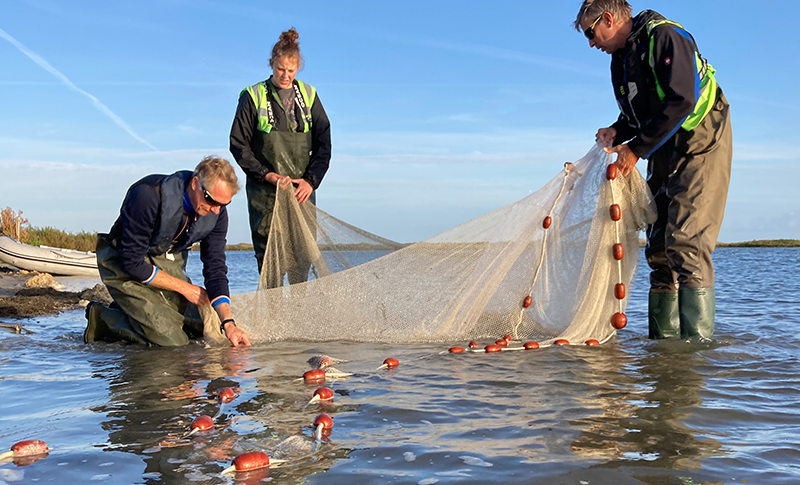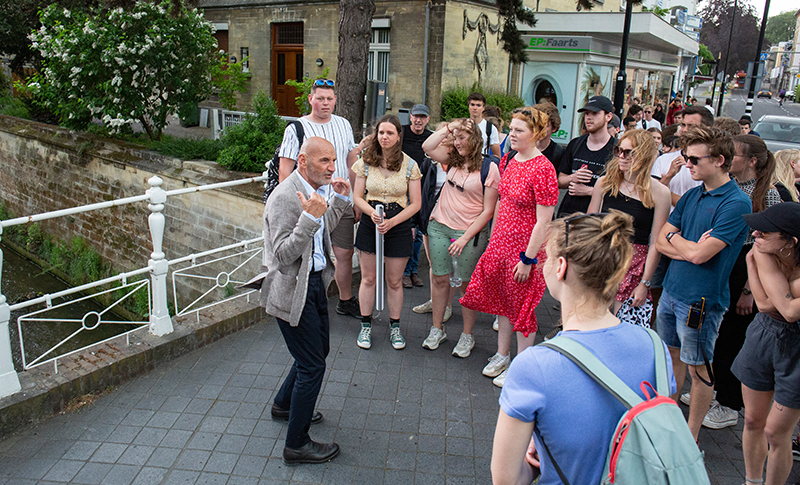Ten days of fieldwork on Terschelling are the core component of the course in Plant, Vegetation and Systems Ecology. The fieldwork was cancelled last year because of the coronavirus, and the teachers kept a Plan B in mind for a long time this year too. But thanks to the good virus figures, tight organization and hard work behind the scenes by teachers and support staff, 60 students set off for the Wadden Sea ‘as usual’ on Sunday 13 June.
The ferry to Terschelling was a happy moment for Wiladatus Sakdiyah (24). ‘Two hours of sailing in the sun and enjoying the view, gazing at the horizon. There were seagulls everywhere and a friend and I saw seals through the binoculars. Everyone was happy.’
Seeing a picture of a plant is nothing like seeing, feeling and smelling that plant
This is Sakdiyah’s first visit to a Wadden island. She comes from Indonesia, and she came to Wageningen in August 2020 for her Master’s in Climate Studies. ‘I considered postponing my arrival by a year because of Covid but in the end we were welcome to come. I expected that we would have some classes on campus and some online, but because of the lockdown it was soon fully online.’ Spring brought hope and easing of measures, but when Sakdiyah registered for Plant, Vegetation and Systems Ecology it wasn’t certain that the fieldwork on Terschelling would go ahead. ‘It is the last course for my Master’s so I’m happy it is going ahead on location. I learn so much more here than at my computer.’
‘During online lectures, there is often silence when a teacher asks whether anyone has any ideas. Here the atmosphere is different, more enthusiastic. We are challenged to do research ourselves and prompted to think critically.’
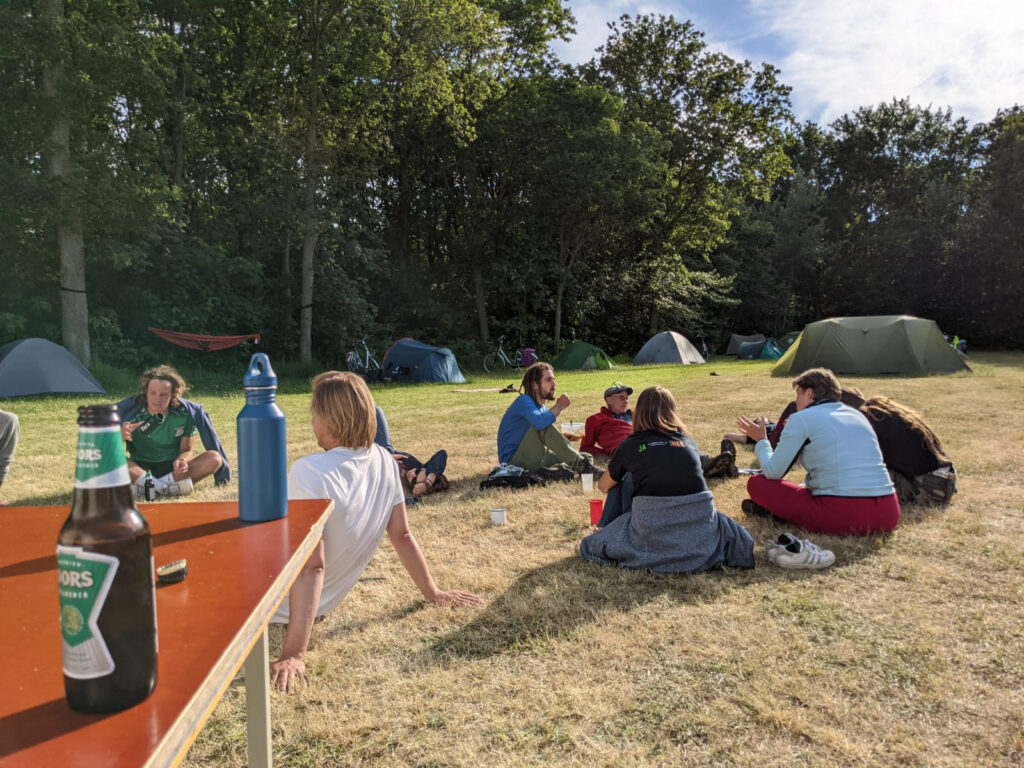
Covid protocol
The 60 students on the course are expected to observe a Covid protocol. That means things like wearing facemasks, everyone sleeping in their own tent, and doing a self-test every morning at eight o’clock. ‘It is totally worth it ,’ says Sebastiaan Grosscurt (24), a Master’s students of Forest & Nature Conservation. ‘You are working in the field for nearly two weeks, something which wasn’t possible for a long time in the Covid time. We are learning to do research and enjoying nature at the same time. And it is a nice opportunity to meet our fellow students.’
There’s a big difference between online classes and fieldwork, says Grosscurt. ‘Seeing a slide with a picture of a plant and some information is nothing like really seeing, feeling, smelling and picking that plant in nature. You learn to apply knowledge in practice straightaway; you get much more out of it.’
Terschelling is giving me the chance to feel like a real WUR student after all
And the social side of things is important too, he emphasizes. ‘I came to Wageningen in September for my Master’s programme. So I mostly knew my course mates from online groupwork. Now we go into the field together for the day and after that we’ve been playing football, frisbee or cards and having a drink together. We watch the Dutch team’s European Cup games on a screen in the big tent. Terschelling is giving me the chance to get to know my fellow students and to be a real WUR student for a while after all. I didn’t have that feeling until now.’
Beach weelchair
The first few days on Terschelling were devoted to excursions, says Master’s student of Biology Maartje van den Bosch (22). ‘Then we divided into small groups to do research ourselves. My group is looking at the differences in insect diversity and numbers between wet and dry dune areas with different levels of acidity. We work with pitfall traps: little dishes you dig into the ground. The dishes contain a mixture of water and washing up liquid, and the insects that fall into them die. After 48 hours, we take the dish out of the ground and see how many insects have fallen in, and which species they are. We also look at the vegetation and take soil samples to measure the acidity level. When we get back to Wageningen we will study the organic matter. In short, it’s nice broad research.’ What purpose does the research serve? ‘Above all, it’s a good way of getting experience of fieldwork and of the best way to set up research. It’s an introduction to practical work.’
We are very grateful to our teachers for organizing this
That practical work sometimes poses unexpected challenges became clear to Van den Bosch on the second evening. ‘After the excursions we went to play football and I tore my ankle ligaments. Really annoying, because I couldn’t join the rest of the excursions – it’s no good if you’re on crutches.’ But she’s trying to make the most of her time on Terschelling anyway. ‘Everyone is very concerned, which is nice. One of the supervisors drives a van around and brings me to the excursion locations that are accessible. On Saturday my group went to the beach to set the pitfall traps. I was very keen to go along so we got hold of a beach wheelchair, with those really thick tyres. One big guy in my group pushed me straight across the sand to the research locations. So I could join in after all.’
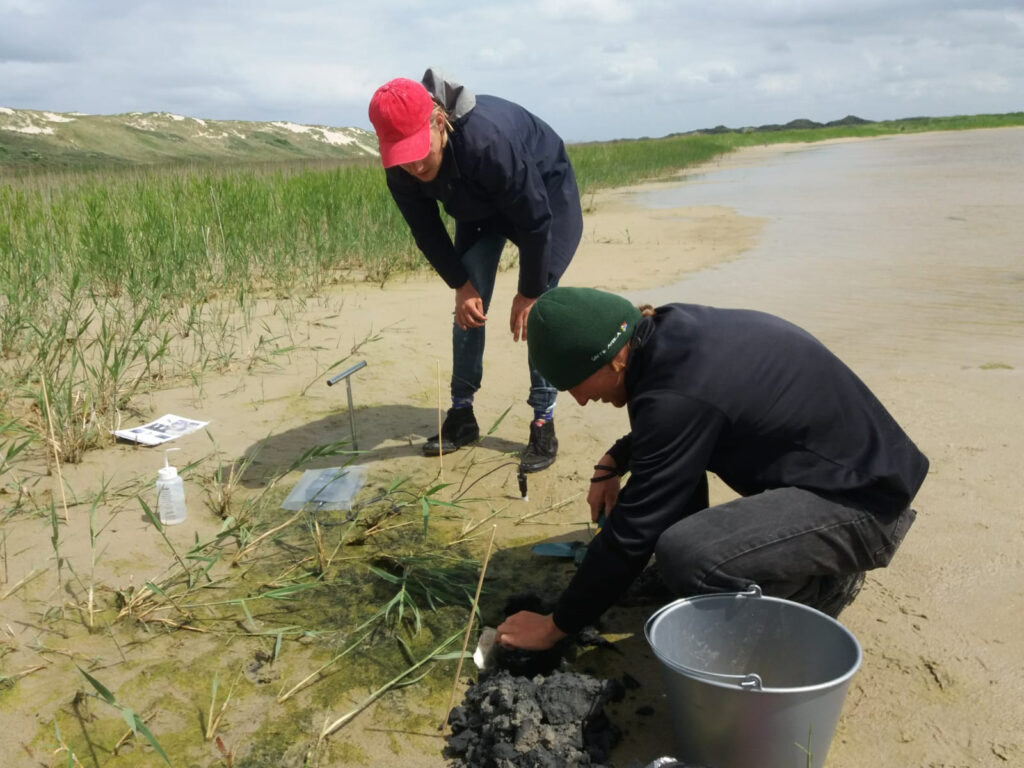
Soil chemistry
Master’s student Iris Verstappen (23) is studying Earth & Environment. ‘In my degree programme I have learned a lot about the soil. Now I want to include the context as well, meaning what grows in the soil. That’s why I came along. I didn’t know much about plants so I’m learning an awful lot every day. About plants but also about how you set up a study, how you collect data and how you analyse those data.’
Verstappen’s group is doing research on whether you can predict the soil chemistry of a piece of ground by having a good look at the plants growing on it. ‘Different plant species demand different soil types. We look at the acidity level, the moisture content and the nutrient level of the soil, and whether they suit the vegetation there. The real question is whether you need to take a soil sample, or whether it’s enough just to look at the plants.’
‘We are learning things here that you don’t learn sitting at your computer,’ says Verstappen. ‘Details too, like it’s better to take notes in the field in pencil, because when it rains, ink from your pen smudges. literally got our feet on the ground here.’ Or in the mud, like the students who went walking on the mud flats of the Wadden Sea on their day off. Sakdiyah: “Personally I needed a weekend off, so I had a nice day on the beach with friends. Chilling out a bit.’
The students realize that organizing the Terschelling trip took some doing. Van den Bosch: ‘Months of work went into organizing this properly. Not just on the education side, but also in terms of Covid.’ Grosscurt adds, ‘It’s great to experience this. My fellow students and I are thoroughly enjoying it. We are very grateful to the teachers.’

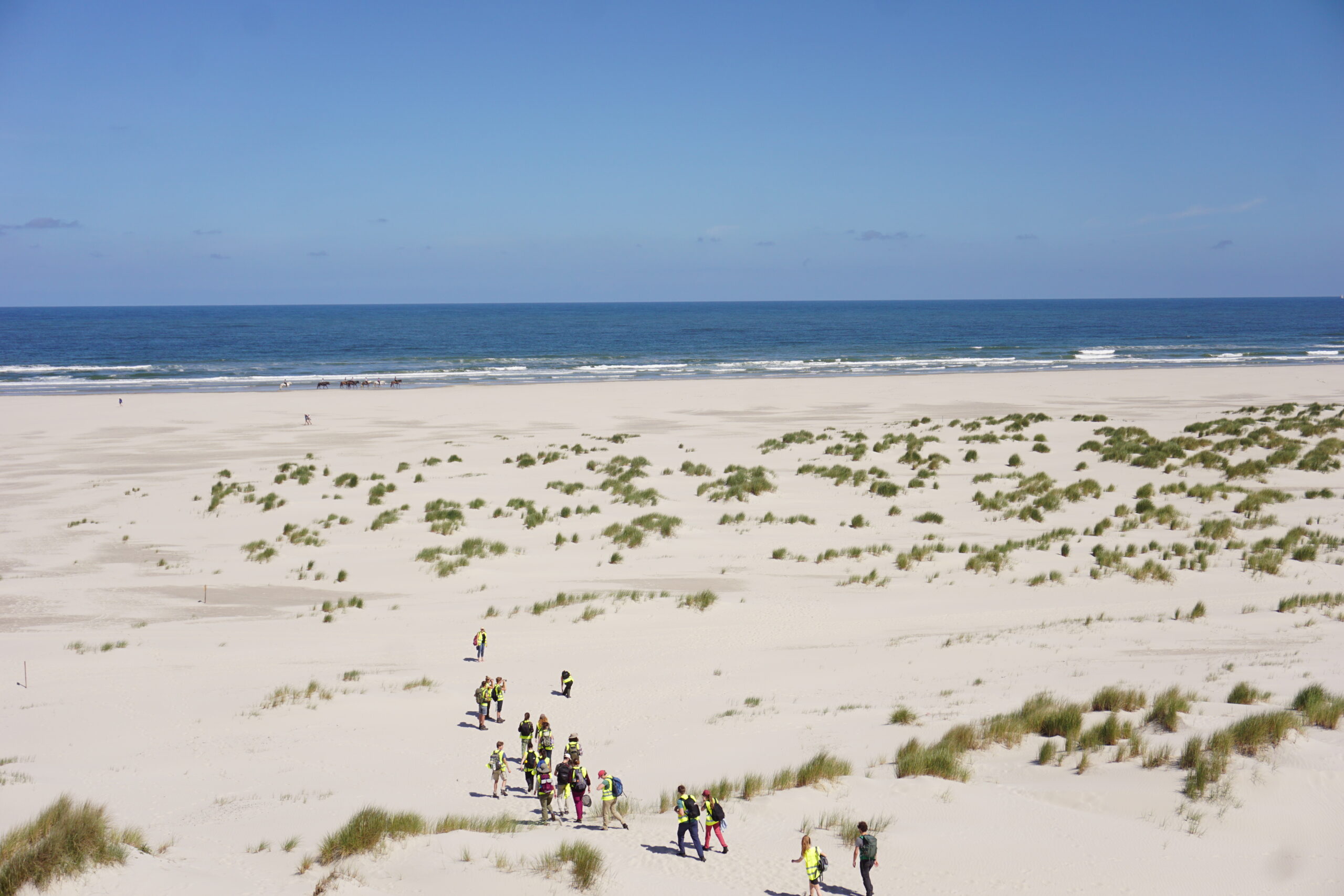 Photo Runa Magnusson
Photo Runa Magnusson 
